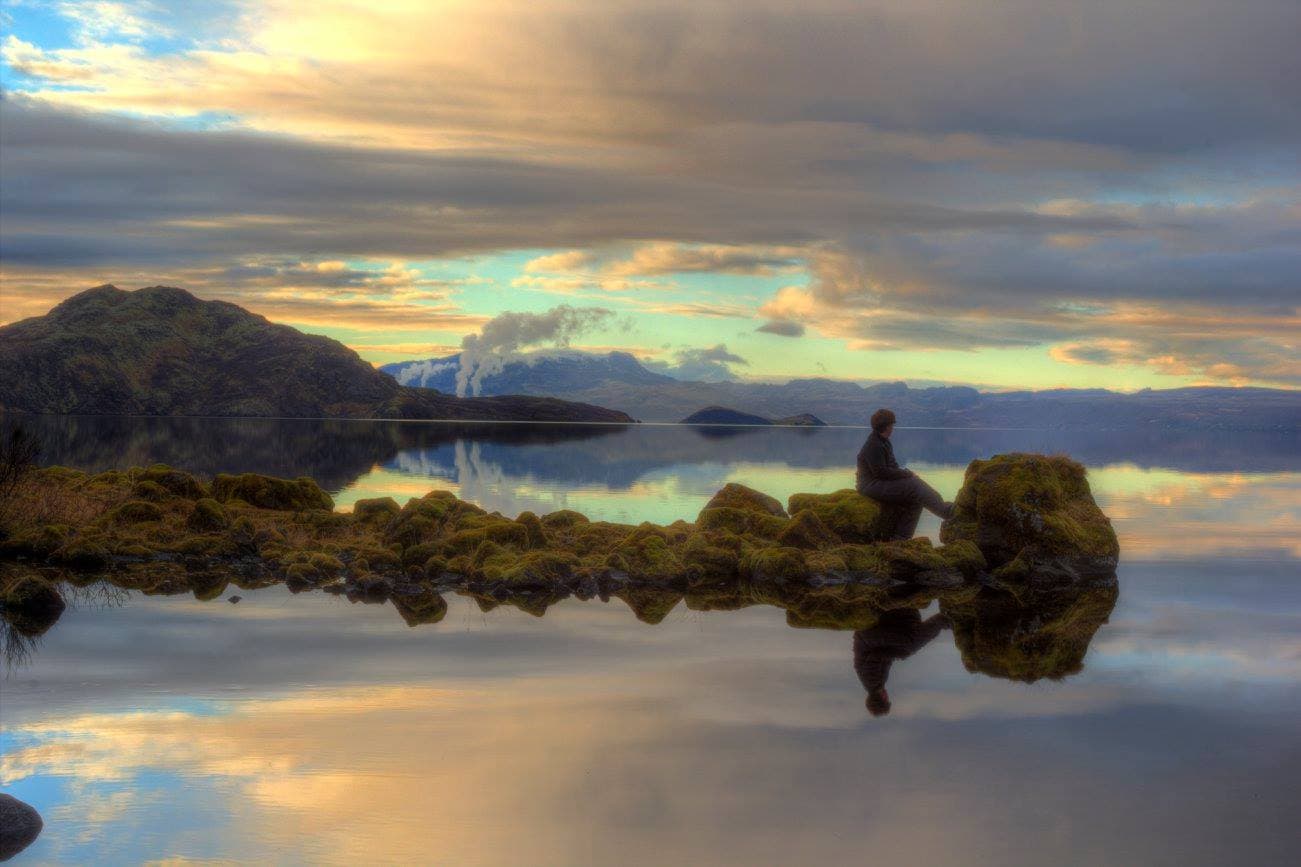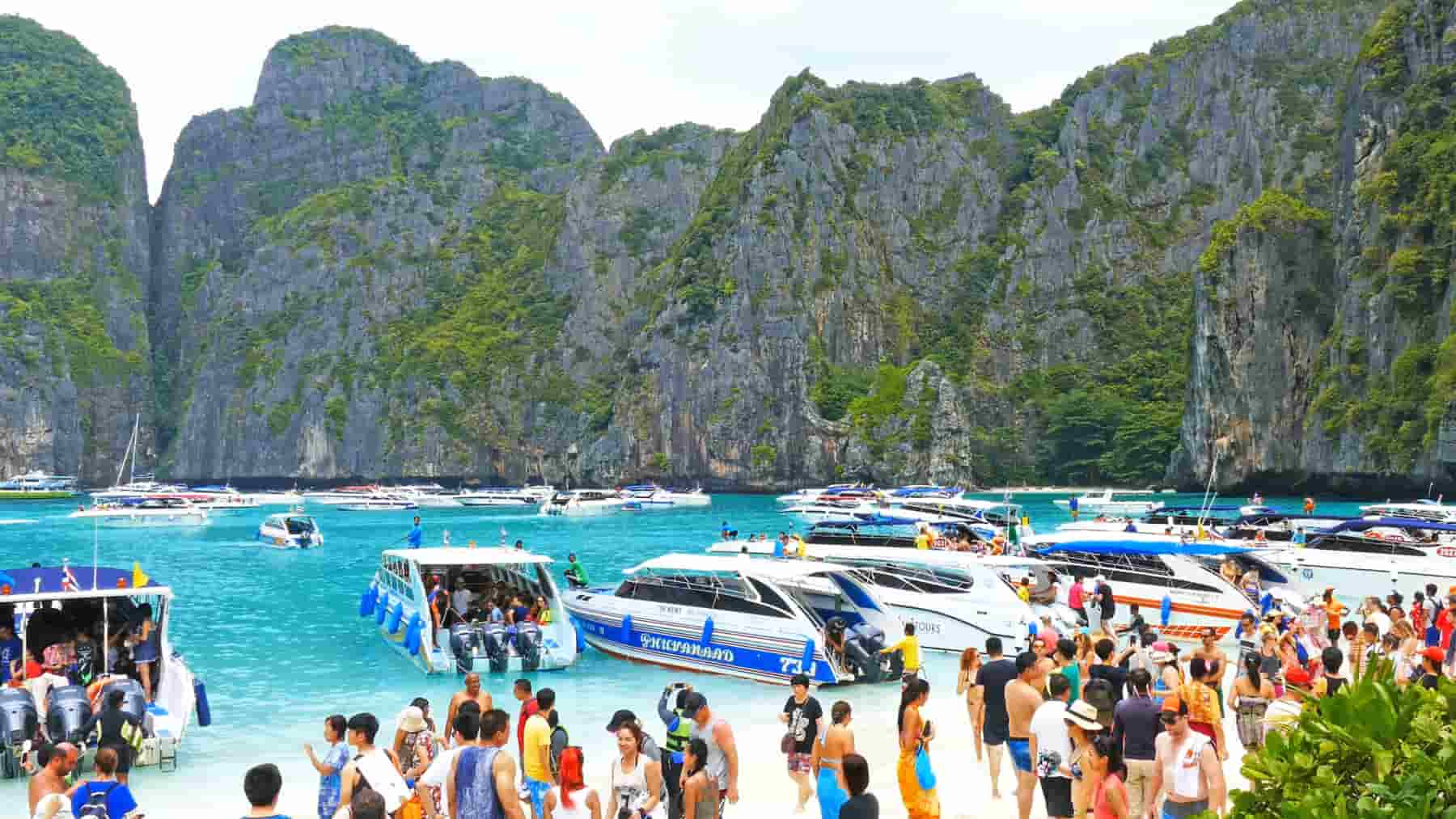Responsible tourism, like sustainable tourism, is something that has been gaining more attention among travelers.
And that's a good thing! A change in habits and attitudes is more necessary than ever, and tourism cannot be left out, as it has a huge ecological footprint.
It's crucial to start breaking down barriers and raise awareness that, in fact, the way we have been living until now is not sustainable for us!
In other words, the problem of climate change is not, contrary to what many think, a problem for the Planet, but rather for US.
As the Legendary David Attenborough said in is last Documentary - a life on Earth - " Nature will always adapt, and it will always survive! Look here at Chernobyl, where I am. There is more wildlife than ever, more trees than ever..."
We should continue doing what we love. However, a small change in habits is necessary. And that small change (or changes) in 7 billion people becomes enormous!
So, are you ready to adopt new habits and become a Responsible Traveller?

Responsible Tourism
There are countless ways to make your trip sustainable and, at the same time, more "responsible" without much effort.
In fact, most of the time, all it takes is some planning and gathering of information.
With these small changes, you're ensuring that future generations can enjoy the destinations you love so much.
1 – Choose a tour operator that prioritizes sustainable travel and ethical and social responsibility.
In other words, the next time you think about booking a trip, give preference to agencies that support communities, animals, and the planet. Companies that help reduce your ecological footprint, offer accommodations in local communities, or sponsor endangered species programs are a great choice.
2 – Book eco-friendly accommodations and support local economies.
So, when booking your accommodation, consider factors such as whether they use solar energy to generate power, if they avoid disposable plastics like cups and plastic cutlery, or if they have a policy of not changing towels daily.
3 – Reduce your ecological footprint.
Similar to the previous point, what you take on your luggage and how you travel contributes significantly to your ecological footprint – choose wisely!

4 – Go where you truly want to go.
In other words, for every massively touristy location, there are hundreds of others waiting to be discovered. Don’t limit yourself to going where everyone else goes and doing what everyone else does. Look for different places, and you’ll see how much more welcome you'll truly feel.
5 – Rethink your hygiene products.
Bar soap, bar shampoo, and conditioner are trending, and that's a good thing. These three products are responsible for endless tons of waste, and switching to them is one of the simplest changes you can make.
If you want to go further, you can adopt bamboo toothbrushes, menstrual cups, and even handmade toothpaste.
6 – Eliminate disposable plastic.
Nowadays, using single-use plastic is simply a matter of convenience. There are countless alternatives available for almost every problem.
So, to name just a few alternatives, there are reusable bottles, disinfectant tablets or filters for drinking water, fabric bags, foldable cutlery, paper or aluminum straws, and bee wraps, which allow you to wrap your sandwiches without using plastic wrap, among many others.
Take reusable items with you and use them on all your adventures.

7 – Choose airlines with "Carbon offset" programs
More and more, airlines are looking to contribute to responsible and more sustainable tourism.
Many have now the"carbon offset program"By the way, TAP was the first company to have this kind of program.
Whenever possible, avoid layovers on your flights.
8 – Practice Slow Travel.
Stay longer in one place, immerse yourself in the culture, and meet new people.
Don't just be another tourist. Discover more about the phenomenon Slow Travel.
9 – Be kind and gentle.
It has no economic cost and can mean a lot to those who provide you with a dream trip, as well as to those you meet along the way.
10 – Be mindful of what you eat.
Trying local cuisine is one of the great pleasures of traveling. However, you should always try to understand what you're actually eating and whether, unknowingly, you might be "sponsoring" animal cruelty behind it.
So, try to choose vegetarian options whenever possible.
11 – Respect the places you visit as well as the people.
Think about the people and places when taking a photo. Would you like to be photographed through your window by a million people every day?
Respect the people and their beliefs, as well as the places (especially places of worship). Remember that you are just a guest.

12 – Surprise the locals.
Learn a few words like "Hello, Thank you, Please, and Goodbye." The locals will be happy to know that someone took the time to at least learn how to greet them in their language.
Good manners are also something you should keep in mind, especially when traveling to places with a culture or religion that is completely different from your own.
13 – Shop in the right places.
Shop at local businesses whenever possible. In addition to getting better prices, you'll also contribute to ensuring that local people earn a fairer wage.
Nem todos podem trabalhar em grandes companhias.
14 – "Clean up before you leave."
It's basic, but many people still leave a trail of trash wherever they go.
Take all your trash with you, and if possible, encourage other travelers to do the same.
15 – Think carefully before posting on social media.
Geotagging has created places that are now overcrowded with hordes of tourists. Many of these locations have to close to tourists for much of the year in order to regenerate. Use your posts to inspire, raise awareness, and educate.

16 – Take care of the local flora and fauna.
Avoid stepping off marked trails when hiking in the mountains. They are there not only to keep you from getting lost but also to protect native species.
However, if you encounter an animal, remain silent and slowly move away. Never feed wild animals. Not only can it become potentially dangerous, but you're also doing more harm than good to the animal, as it will stop eating its natural diet.
17 – Volunteer.
One of the ways to practice responsible and, at the same time, sustainable tourism is definitely through volunteer tourism.
However, if you have the opportunity to volunteer during your travels, be mindful of the organizations you choose. Do thorough research on their causes and make sure they are not just a "facade" or a means of "money laundering."
18 – Don’t “sponsor abuse.”
If you see children begging on the street, avoid giving money. These children are being prevented by their parents from going to school because they know people are more likely to feel sorry for children.
Therefore, avoid at all costs companies that exploit people, animals, and children. Sex tourism or drug tourism should be avoided at all costs.

Little by little, we can change the awareness of many.
Adopt some of these practices and share them with your fellow travelers.
After all, practicing responsible and more sustainable tourism is within everyone's reach.







